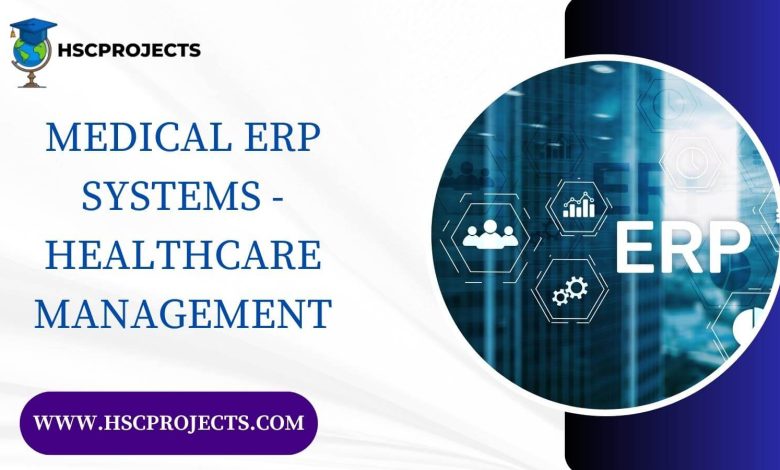
Medical ERP Systems – Healthcare Management
Introduction
The healthcare industry is increasingly complex and data-driven. In such an environment, effective management of resources becomes crucial for patient care and operational efficiency. Enter Medical ERP (Enterprise Resource Planning) systems—dedicated software solutions that serve as the backbone for managing all critical aspects of a medical organization.

Features of Medical ERP Systems
Medical ERP systems come packed with functionalities designed to streamline various operational aspects, including supply chain management, human resources, and financials. Here are some key features:
- Centralized Database: All crucial information is stored in a central database, making it easy to retrieve and update data.
- Inventory Management: The system can alert staff when medical supplies are low or expired, reducing the risk of running out of essential items.
- Automated Notifications: With SMS notifications, key personnel can be immediately alerted about critical events such as low stock levels or system outages.
- Role-Based Access: Ensures that only authorized personnel have access to sensitive information.
Advantages
The implementation of ERP in medical settings offers numerous advantages:
- Operational Efficiency: By automating routine tasks, the system reduces the need for manual labor, leading to more streamlined operations.
- Cost-Effectiveness: With more accurate tracking of supplies and personnel, organizations can identify areas for cost-cutting.
- Enhanced Security: Role-based access and encryption features make sure that the data is secure.
- Data-Driven Decisions: With real-time statistics on inventories and other metrics, administrators can make more informed decisions.
Disadvantages
While ERP medical systems offer numerous benefits, they are not without drawbacks:
- Reduced Employment: Automation can potentially reduce the need for manpower, leading to job losses.
Customization
The beauty of a medical ERP system lies in its flexibility. Most platforms allow for customization to better align with an organization’s specific needs. Whether it’s integrating a new module for telehealth or tweaking inventory parameters, medical ERP systems can adapt to the evolving landscape of healthcare.
Conclusion
The incorporation of Medical ERP systems into healthcare institutions is not just a trend; it’s a necessity for modern-day medical management. From ensuring patient safety to optimizing operational efficiency, these systems are indispensable tools for any medical organization aiming for excellence in service and operation.
Sample Code
from flask import Flask, request, jsonify
from twilio.rest import Client
import sqlite3
# Twilio setup
account_sid = 'your_twilio_account_sid'
auth_token = 'your_twilio_auth_token'
twilio_client = Client(account_sid, auth_token)
app = Flask(__name__)
def init_db():
conn = sqlite3.connect('medical_erp.db')
cursor = conn.cursor()
cursor.execute('''CREATE TABLE IF NOT EXISTS inventory
(item TEXT, quantity INTEGER)''')
conn.commit()
conn.close()
init_db()
@app.route('/update_inventory', methods=['POST'])
def update_inventory():
conn = sqlite3.connect('medical_erp.db')
cursor = conn.cursor()
item = request.json['item']
quantity = request.json['quantity']
cursor.execute("INSERT INTO inventory (item, quantity) VALUES (?, ?)", (item, quantity))
conn.commit()
if quantity < 10:
send_sms_alert(item, quantity)
conn.close()
return jsonify({'status': 'Inventory updated'})
def send_sms_alert(item, quantity):
message = twilio_client.messages.create(
body=f"ALERT: {item} is low in stock. Only {quantity} remaining.",
from_='+your_twilio_phone_number',
to='+recipient_phone_number'
)
@app.route('/get_inventory', methods=['GET'])
def get_inventory():
conn = sqlite3.connect('medical_erp.db')
cursor = conn.cursor()
cursor.execute("SELECT * FROM inventory")
data = cursor.fetchall()
inventory = {}
for item, quantity in data:
inventory[item] = quantity
conn.close()
return jsonify(inventory)
if __name__ == '__main__':
app.run(debug=True)
In order to download the PDF, You must follow on Youtube. Once done, Click on Submit
Follow On YoutubeSubscribed? Click on Confirm
Download Medical ERP Systems – Healthcare Management PDF






